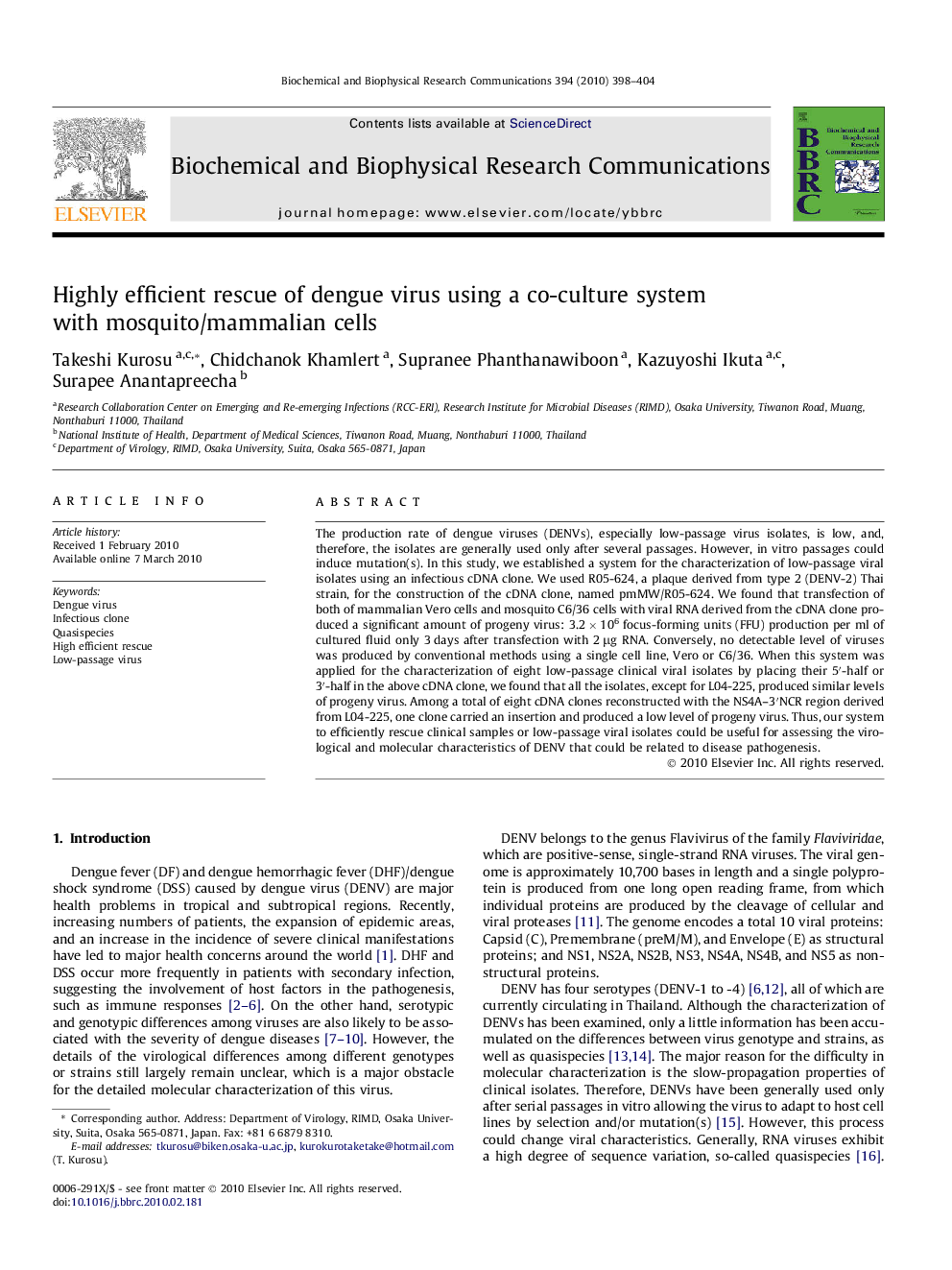| Article ID | Journal | Published Year | Pages | File Type |
|---|---|---|---|---|
| 1932425 | Biochemical and Biophysical Research Communications | 2010 | 7 Pages |
The production rate of dengue viruses (DENVs), especially low-passage virus isolates, is low, and, therefore, the isolates are generally used only after several passages. However, in vitro passages could induce mutation(s). In this study, we established a system for the characterization of low-passage viral isolates using an infectious cDNA clone. We used R05-624, a plaque derived from type 2 (DENV-2) Thai strain, for the construction of the cDNA clone, named pmMW/R05-624. We found that transfection of both of mammalian Vero cells and mosquito C6/36 cells with viral RNA derived from the cDNA clone produced a significant amount of progeny virus: 3.2 × 106 focus-forming units (FFU) production per ml of cultured fluid only 3 days after transfection with 2 μg RNA. Conversely, no detectable level of viruses was produced by conventional methods using a single cell line, Vero or C6/36. When this system was applied for the characterization of eight low-passage clinical viral isolates by placing their 5′-half or 3′-half in the above cDNA clone, we found that all the isolates, except for L04-225, produced similar levels of progeny virus. Among a total of eight cDNA clones reconstructed with the NS4A–3′NCR region derived from L04-225, one clone carried an insertion and produced a low level of progeny virus. Thus, our system to efficiently rescue clinical samples or low-passage viral isolates could be useful for assessing the virological and molecular characteristics of DENV that could be related to disease pathogenesis.
